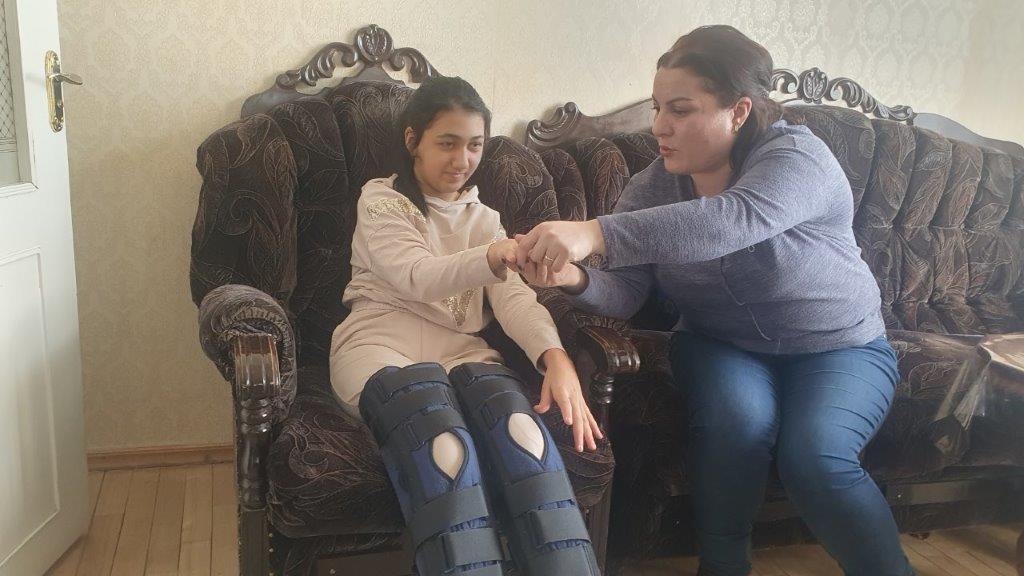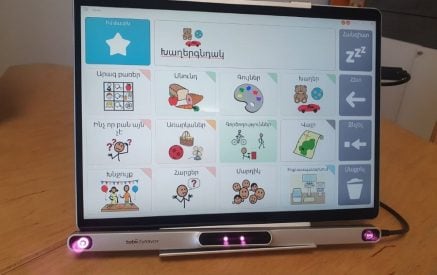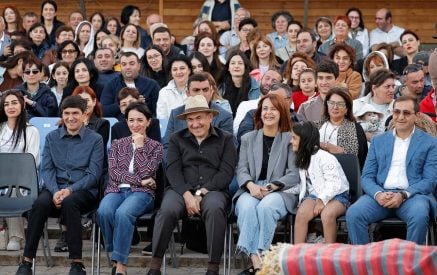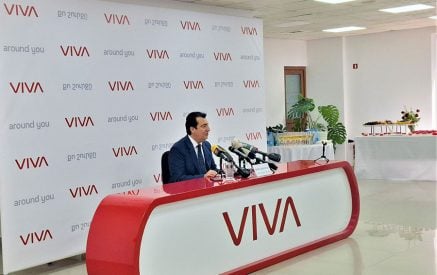Tendency to self-isolation, limited communication outside the family, and mental dependence from mother’s constant care… This is how 13-year-old Monica with cerebral palsy (CP) behaved before she got into the household support program. With the support of Viva-MTS, “SOURCE” foundation has changed the rhythm of life for the girl and her family, the dynamics of integration and development in society. Because of the targeted support and the individual assistant assigned to the family Monica’s fine motor skills, memory, desire to integrate with the environment, and positive thinking developed within just four months.
The restricted mind has given way to increased confidence in her abilities and a desire to communicate with her classmates via video call, as well. The girl, who lives in one of Armenia’s regions, is reluctant to accept “technological development”, but she is willing to use tools to get to know Armenia and its capital. She loves her identity, the Armenian language, and favorite character is Mesrop Mashtots. Everyone in the family credits that success to the implemented program of personal assistance and the consistent work of the assistant has done. The program is now over; Monica has also undergone a needed surgery to over some health problems she had, but stays optimistic and her desire to move forward has strengthened now.
“The role of an assistant is important in such families. They are in a vulnerable group. Mothers are responsible for their children, and as a consequence, they oftentimes almost forget themselves. We help not only the child, but also the parent. The program allows us to alleviate some of the mother’s concerns, giving her and the child confidence that they are not alone,” Monica’s individual assistant, Haykanush Gasparyan, said.
Started in 2016, the cooperation between Viva-MTS and the “SOURCE” foundation has provided the desired result for all the families that have become beneficiaries of the program. Personal assistant services have expanded geographically in recent years. The regions were also included in the program, which is extremely important. The availability of specialized centers in remote areas is limited primarily due to their absence. From this point of view, the support provided to children with special care needs in different regions is very important.
Read also
Individual tutors perform the duties of a nanny-caregiver or a development specialist. Their selection, training, supervision of work, communication with the parent, discussions, and writing of an individual development and care plan for each child are organized by a multidisciplinary expert team. The team includes a speech therapist who coordinates the work and a psychologist. In special cases, the special needs pedagogue, physiotherapist, or ergotherapist are consulted to organize the child’s daily environment and solve positioning problems. The individual assistant program for children with special needs continues to be on demand in Armenia.























































